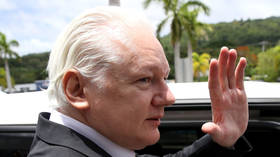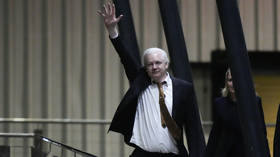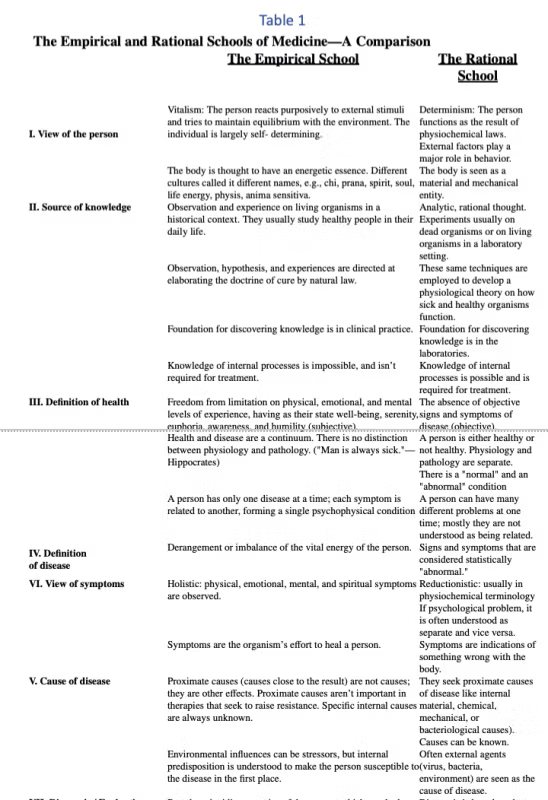It’s Darkest Before Dawn
It’s been a painful four years watching the experts, backed by power, dismantle all the foundations of the good life, and yet not be held accountable for the results.
The astonishing debate scene between Trump and Biden makes the point and leaves us with a strange new reality. The facade at the top has cracked in full view of the entire planet. The problems in evidence have been there for years and yet no establishment voices have revealed them. It’s been the opposite actually. Talk about Biden’s issues has been deemed disinformation.
Indeed, a message sent to Brownstone’s own Google Group before the debate concerning Biden’s prospects in the debate was deleted by Google. That’s never happened in 20 years of my experience with this platform. The near-monopolist on search deleted as a speech violation what the whole world would know is true later that evening.
Indeed, vast numbers of people know the truth. But no official sources will tell the fullness of it, even as the opportunity and venues in which the truth can be told are shrinking daily.
We are increasingly watching public life as a fabulistic theater. It only holds our attention because we wonder how much truth the elites are going to allow to be leaked and why.
And this new system is toying with the core of expectations for the future. Are we doomed or will we come back from the brink? There is darkness before dawn but just how dark must it become before we see the signs of hope?
For example, from the Supreme Court this week we received terrible news (free speech on the Internet is nearly at an end) but also good news (the administrative state cannot do whatever it wants and the reigning political party cannot jail its political opponents on spurious grounds).
Therefore, on the one hand, as the empire ends and the darkness in the West descends ever further, we will hear ever less about it, much less openly discuss the cause. On the other hand, the expert class that is tearing apart the good life now faces some problematic barriers to their unmitigated power.
In that sense, the Trump/Biden debate last night had all the elements we needed to understand the moment. It was a completely different experience from any ever seen on TV. It’s not just that Biden fell apart last night. It’s that the experience revealed what’s been true for a very long time and has not been reported. It’s been censored. That’s a further blow to the whole credibility of the media.
Then the world woke up in the aftermath to the whole of the establishment media, which only 24 hours earlier said that talk of Biden’s decline was misinformation, now saying that Biden absolutely must be replaced on the Democratic ticket, otherwise Trump will win the election. It happened that fast. Then, only a few hours later, the Biden campaign and his minions have said absolutely not: he will go the full distance.
It all raises the big questions. Was the debate scheduled so early, before the conventions and nominations, precisely to let Biden fail on his own so he could be replaced? If so, that is very cruel. Or was this not foreseen and now we see authentic reactions from a whole class of media and intellectual elites who are panicked about the future?
Was this a planned crash and burn or an inadvertent collapse? And what happens when there is such a huge divergence of strategy within the ruling class structure?
To be sure, there is an element of fakery about the whole drama. Elon Musk said it plainly, as is his way: “They’re just talking puppets. It was a setup for a switch.”
Alex Berenson offered this reaction to the June 27th debate between Trump and Biden: “This reminds me of the last days of the Soviet Union. Everyone knew it was over, someone close to the top just had to be the first to say so, and then the collapse was both inevitable and immediate.”
The strangeness and tragedy of last night’s content were intensified by the oddly clinical and bloodless staging: mics and technology on timers, no audience, and robotic questions read by expressionless professionals. It was a real-life mockumentary of two octogenarians navigating an AI world, with the system rigged to make a sadly non-functioning elderly person (a stand-in no different from Chernenko or Brezhnev) seem vaguely functional.
Even that did not work.
The scene also recalled the ethos and aesthetic of lockdowns. It was performance without audience, content without authenticity, digits flowing across screens that seemed to have nothing to do with normal life. It was a clinical performance in which the patient died.
The Covid response did come up last night, with Trump finally conceding, not in those words but by implication, that it was what doomed his first term. He must feel tremendous bitterness about the whole thing but he still dares not speak about what happened in any detail.
It was also interesting that Trump said he doesn’t get enough credit for the good he did in 2020. In saying that, and probably for the first time, he said nothing praiseworthy about the vaccine itself but rather highlighted “the therapeutics.”
His comments on the vaccine were limited to condemning the mandates.
If nothing else, Trump reads the room well. It seems like the vaccine narrative (mRNA saved society from vast death) is not sticking, even if industry spokesmen will keep saying that for years to come.
Notice how the CNN reporters got zero traction with the “climate change” line of questioning. Trump wisely stuck with the need for clean water and air. Biden mumbled something about an existential crisis. But none of it went anywhere, and this is mostly because no one much cares.
And this makes sense. When the economy is decaying rapidly, households cannot pay their bills, the insurers and tax collectors are grabbing any excess wealth in sight, even high-end professionals pack sack lunches rather than pay restaurant prices, and lifespans in the US are in precipitous decline due to chronic disease, it’s hard to get people exercised about yet another invisible enemy with an uncertain cause and sketchy solution of dismantling what remains of prosperity.
In another corner, we had the “real debate” with Robert F. Kennedy, Jr., watched by 5.5 million people. That’s a huge audience but an audience with no real hooks into the machinery that runs the political system. In his own response, he was warm, humble, truth-telling, and human. Agree or disagree, he was talking about things that matter. And he clearly has faith that the system can be fixed, while others are not so sure.
The entire RFK experience on debate night was relegated to a sideshow. He began his run for the presidency with the assumption that there was enough decency remaining in the political system to grant him a fair shot. The Democratic National Committee said absolutely not. They gave him no opportunity at all even to challenge Biden for the nomination, despite what everyone already knew about Biden’s physical and mental condition.
Not willing to give up his ideals, he decided on an independent run. In the US political system, every such effort runs headlong into Duverger’s law. This states that any election in which a winner takes all will always default to two choices. This is due to strategic voting in which people vote not for what they favor but against that which they fear the most. What independent runs in the American system do is introduce the possibility of vote-splitting of the person who would otherwise be the winner.
The election of 1912 is the classic case. William Howard Taft garnered the Republican nomination. Annoyed and determined to reclaim the presidency, Theodore Roosevelt, who had served as president from 1901 to 1909, formed the Bull Moose (Progressive) Party and gained a substantial portion of the popular vote but not enough to win.
This threw the election to the least favorite: Woodrow Wilson, a member of the Ivy aristocracy with essentially insane ideas with zero popular support. Wilson pushed the income tax, the direct election of the Senate (thus eliminating the bicameral system), he ratified the Federal Reserve, and got the US embroiled in the Great War, which meant censorship and the Espionage Act.
This was the turning point in which the old Constitution was replaced by a new one, all due to an electoral dispute and the only truly substantial third-party presidential run in US history.
What will be the effect of this RFK run? Can he win? Despite all predictions to the contrary, there might be a chance. But if he does not, from whom will he draw the most votes? Trump or whoever is going to replace Biden? And what if we end up with someone like Gavin Newsom, who was the leader among the worst of the Covid totalitarians who has driven a stake into the heart of the California economy?
This disaster scenario is not entirely out of the question.
Another consideration is that Elon is correct that none of this matters. The elected portion of government has been reduced to nothing but a veneer to be sanded down and changed from time to time, whereas the substance of government consists of its deep, middle, and shallow layers that operate without any public control at all. And their functioning is in the process of being reformed with artificial intelligence replacing human control.
In this case, the strange debate last night might be a foreshadowing of our future reality. It’s technology, performance, and dispensable actors moving within a system that is beyond anyone’s actual control. Is this inevitable? Is there anything that can be done to stop it? Such questions are beyond my capacity but I do highly recommend Tom Harrington’s reflection on the decline and fall of the Spanish Empire.
Brownstone Institute was founded with a sense that we needed sanctuary for ideas in very hard times, but we certainly could not have anticipated how quickly the darkness would descend, much less the depths to which every feature of public life would fall. This disaster was made by human hands; its perpetuation will be achieved by AI.
Is there no hope? Of course there is. Just this morning, the day after the debate disaster and two days following the court’s terrible decision on free speech, a central pillar of administrative totalitarianism was toppled by the court. The so-called Chevron Deference is over. Finally, we have some clarity on what agencies can and cannot do at their own discretion. It’s a big win, but about 1% of what is necessary to regain rights and liberties.
America can come back but how and when? That is what remains unknown. But this much is known: the high-end strata of experts who have long had a free hand in structuring our lives now stands discredited. Even more devastating, humiliation is now added to the mix.
For reprints, please set the canonical link back to the original Brownstone Institute Article and Author.
----------------------------------




